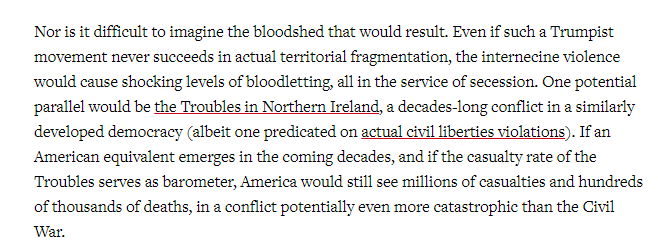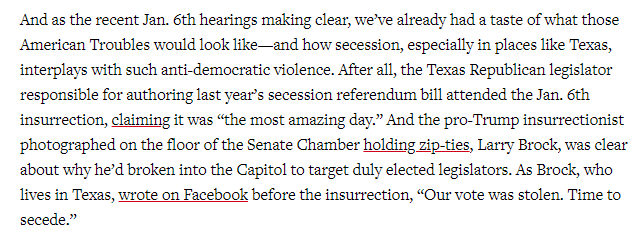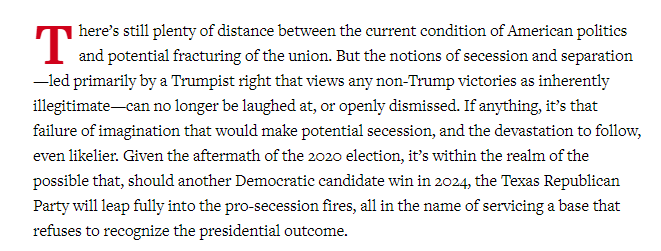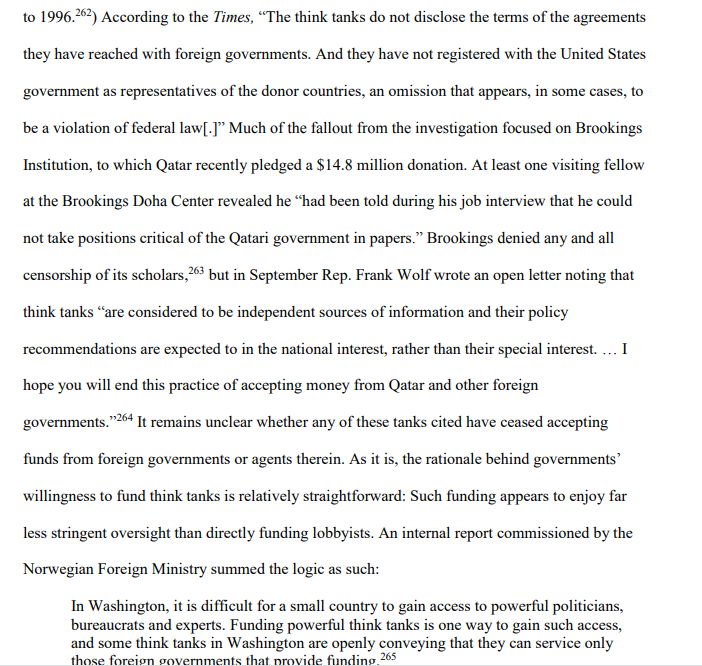
Phenomenal news: Alexander Ionov, the Russian national who spent years organizing Texas secessionists' trips to Moscow, has been sanctioned by the U.S.
home.treasury.gov/policy-issues/…
home.treasury.gov/policy-issues/…
Ionov's "Anti-Globalization Movement of Russia," which bankrolled the Texas and California secessionists' travels in Russia, has also been officially sanctioned.
This was the main group that used Kremlin funding to organize Western separatist movements.
This was the main group that used Kremlin funding to organize Western separatist movements.
Ionov is a "FSB co-optee" who "promulgate[d] the Kremlin's disinformation and malign influence agenda," per Treasury.
Ionov has also been involved in identifying certain candidates worth supporting in U.S. elections.
Ionov has also been involved in identifying certain candidates worth supporting in U.S. elections.
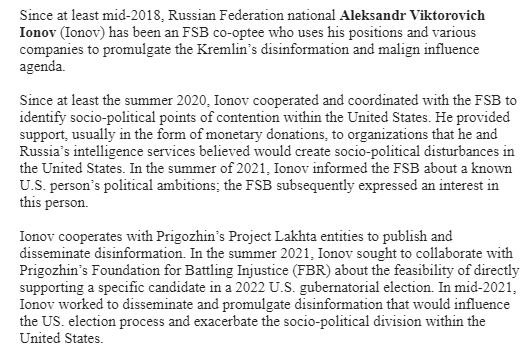
Oh wow: There's also a formal DOJ indictment against Ionov for helping bankroll secessionist movements in the U.S. justice.gov/opa/pr/russian…
"Ionov allegedly orchestrated a brazen influence campaign, turning U.S. political groups and U.S. citizens into instruments of [Russia]."
"Ionov allegedly orchestrated a brazen influence campaign, turning U.S. political groups and U.S. citizens into instruments of [Russia]."
Two of the groups mentioned (but unnamed) in this indictment for working with Ionov are @YesCalifornia, the main California secession group, and Uhuru, a Black nationalist separatist movement working with Ionov through earlier this year.
https://twitter.com/cjcmichel/status/1553051654978674691
Here is the formal indictment against Ionov: scribd.com/document/58470…
This indictment is a long time coming. Ionov's involvement in stoking American separatist movements dates to at least 2014, when he first linked up with Texas secessionists and brought them to Moscow.
This indictment is a long time coming. Ionov's involvement in stoking American separatist movements dates to at least 2014, when he first linked up with Texas secessionists and brought them to Moscow.
Our 2021 report from @4freerussia_org has everything you need to know about Russia's links with multiple American secessionist groups, and Ionov's leading role therein:
https://twitter.com/cjcmichel/status/1426199244948582403
This is new: Russia's links to the @YesCalifornia California secession group continued through at least 2018, funding protests in Sacramento.
Ionov wrote "that FSB OFFICER 1 had asked for 'turmoil' and 'there you go.'"

Ionov wrote "that FSB OFFICER 1 had asked for 'turmoil' and 'there you go.'"
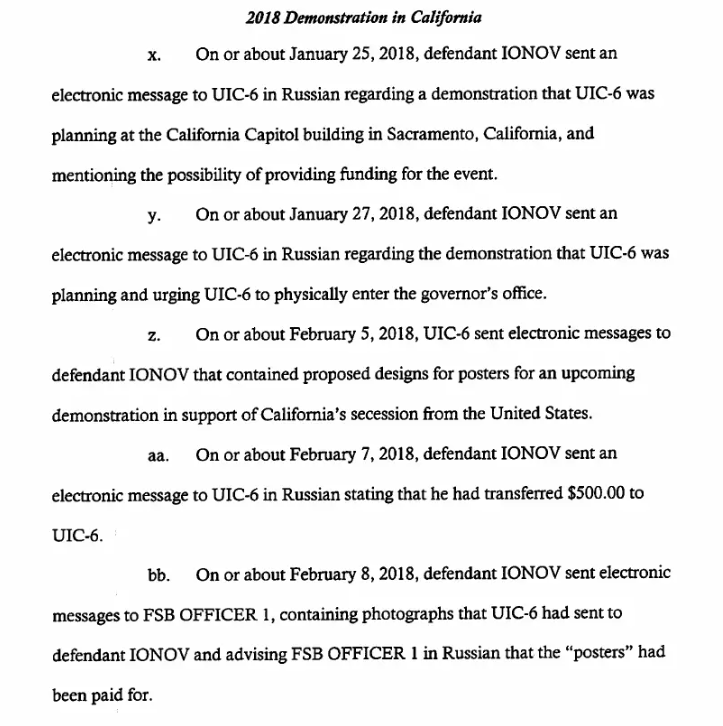
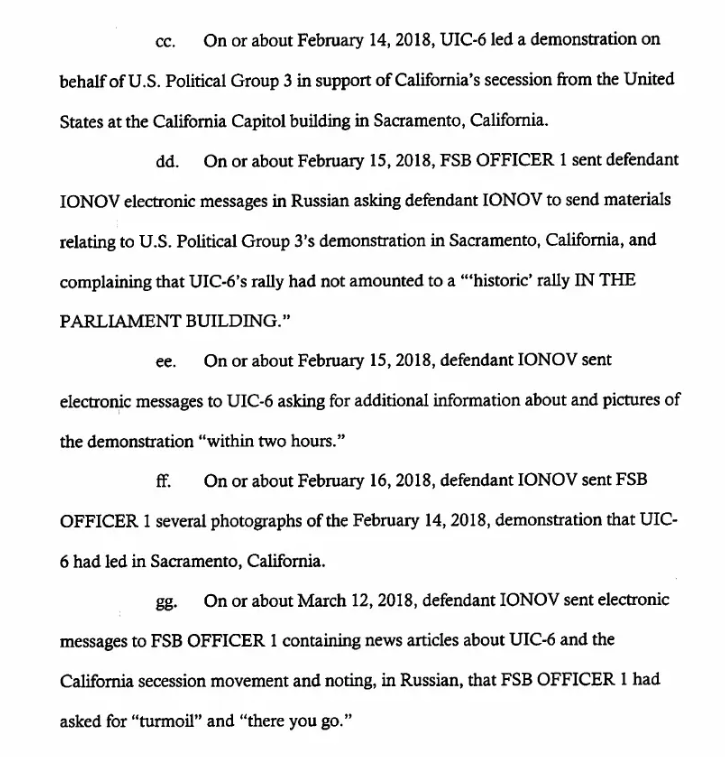
On a personal note: I never would have started covering Russian interference efforts in the U.S. without Ionov. It was his work with Texas secessionists that launched this prong of my work.
(This is him with Nate Smith, exec. director of @TexasNatMov.)
(This is him with Nate Smith, exec. director of @TexasNatMov.)
https://twitter.com/antiglobalist1/status/613477931579514880
One last thought: This is the first confirmation that the FSB itself was directly involved in stoking American secessionist movements over the past few years.
https://twitter.com/cjcmichel/status/1553061487790391297?s=20&t=-WDVmHQpjBOXpUONA_Ym4w
• • •
Missing some Tweet in this thread? You can try to
force a refresh


